Mechanical Engineering, Bachelor of Engineering
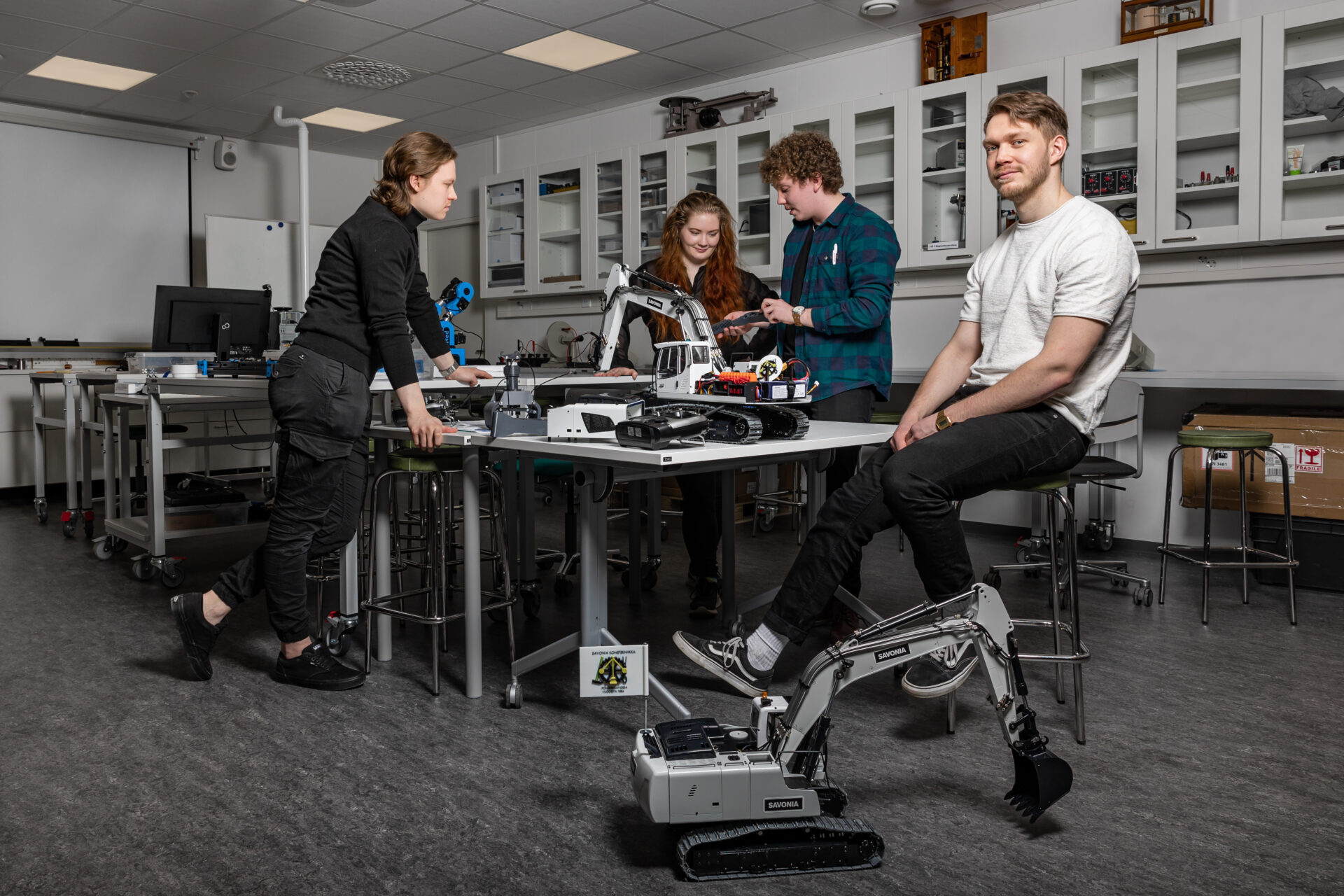
Mechanical Engineering
Bachelor of Engineering
Become an international expert on Mechanical Engineering!
NEXT APPLICATION PERIOD:
Autumn 2024 and 8-22 January 2025
Degree programme: Mechanical Engineering
Degree title: Bachelor of Engineering
Duration: 240 ECTS, 4 years
Study mode: Full-time studies
Study place: Microkatu campus, Kuopio, Finland
Language: English
Annual intake: 45
The Bachelor of Engineering, Mechanical Engineering programme develops technology industry experts with a specialisation in mechatronics. Mechatronics is an interdisciplinary branch of engineering that focuses on the integration of mechanical, hydraulical, pneumatical, electrical engineering and digital control systems.
At the Savonia University of Applied Sciences mechatronics is studied with machines such as mini excavators to which students can design new parts or systems. Other examples of mechatronics are industrial robots and miniature smart factories. These will also become familiar to Mechanical Engineering students at Savonia UAS.
The degree programme qualifies engineers to work in high technology companies working on international technology projects. The duties of a mechanical engineering graduate fall within the fields of mechanical engineering and control system. Engineer’s responsibilities may include planning, machine design, product development, production development, manufacturing, procurement, resource planning, system development, supply chain management, management, service chain management, maintenance and other industrial-related activities.
In addition, to acquiring industrial engineering know-how, an important part of the programme focuses on developing an international competence, learning how to operate effectively in a variety of interpersonal networks, and cultivating communication, social, teamwork, and problem-solving skills. The goal is to educate high-quality team players instead of individual autonomous workers.
This programme has strong roots in the North Savo region. Engineers have been educated here since 1886. This means that the programme is highly networked with local businesses.
Complete this form and the student recruitment team will reply to you
Programme Highlights
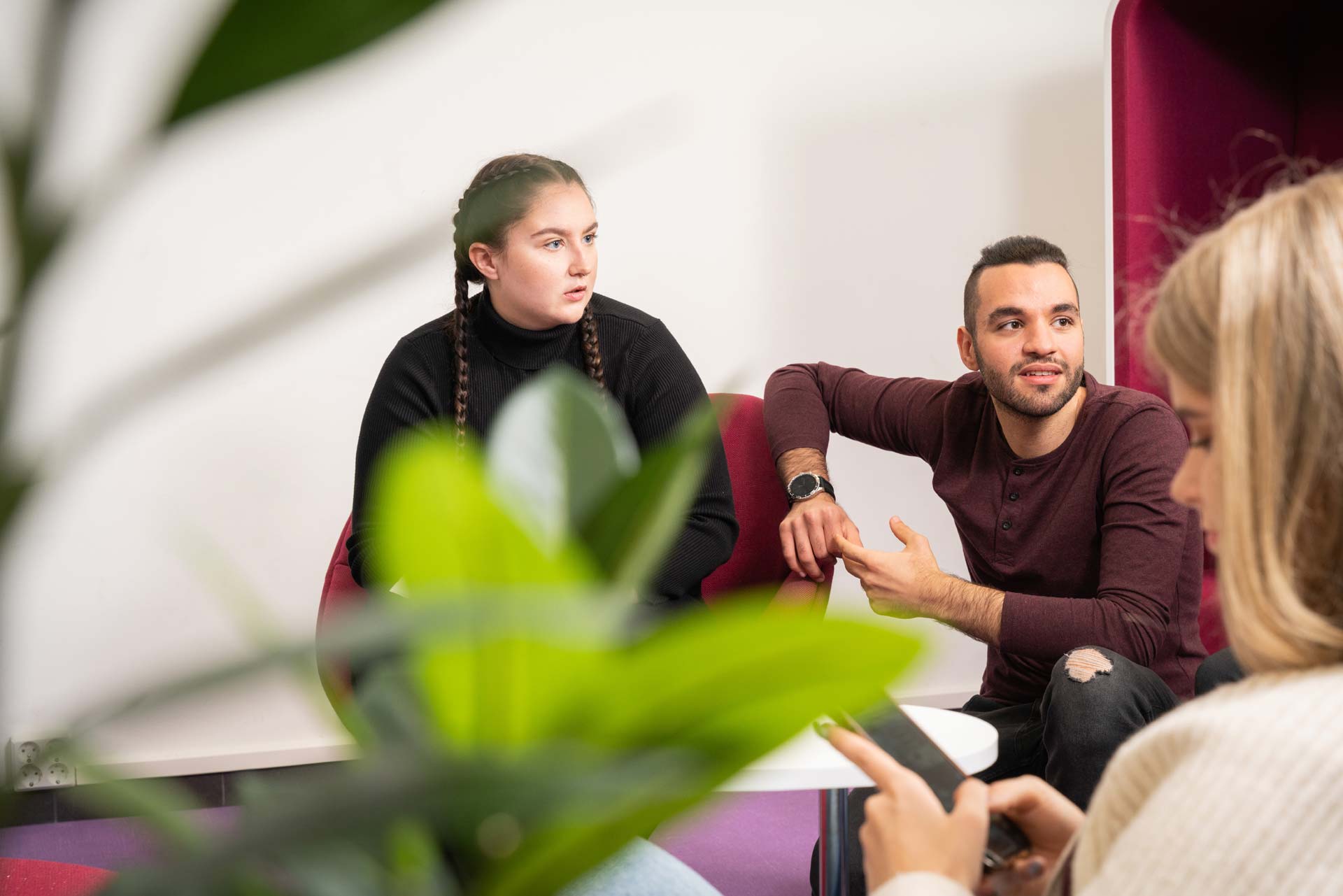
Double degree programme
Mechanical Engineering students have the opportunity to complete a double degree in Windesheim University of Applied Sciences in the Netherlands.
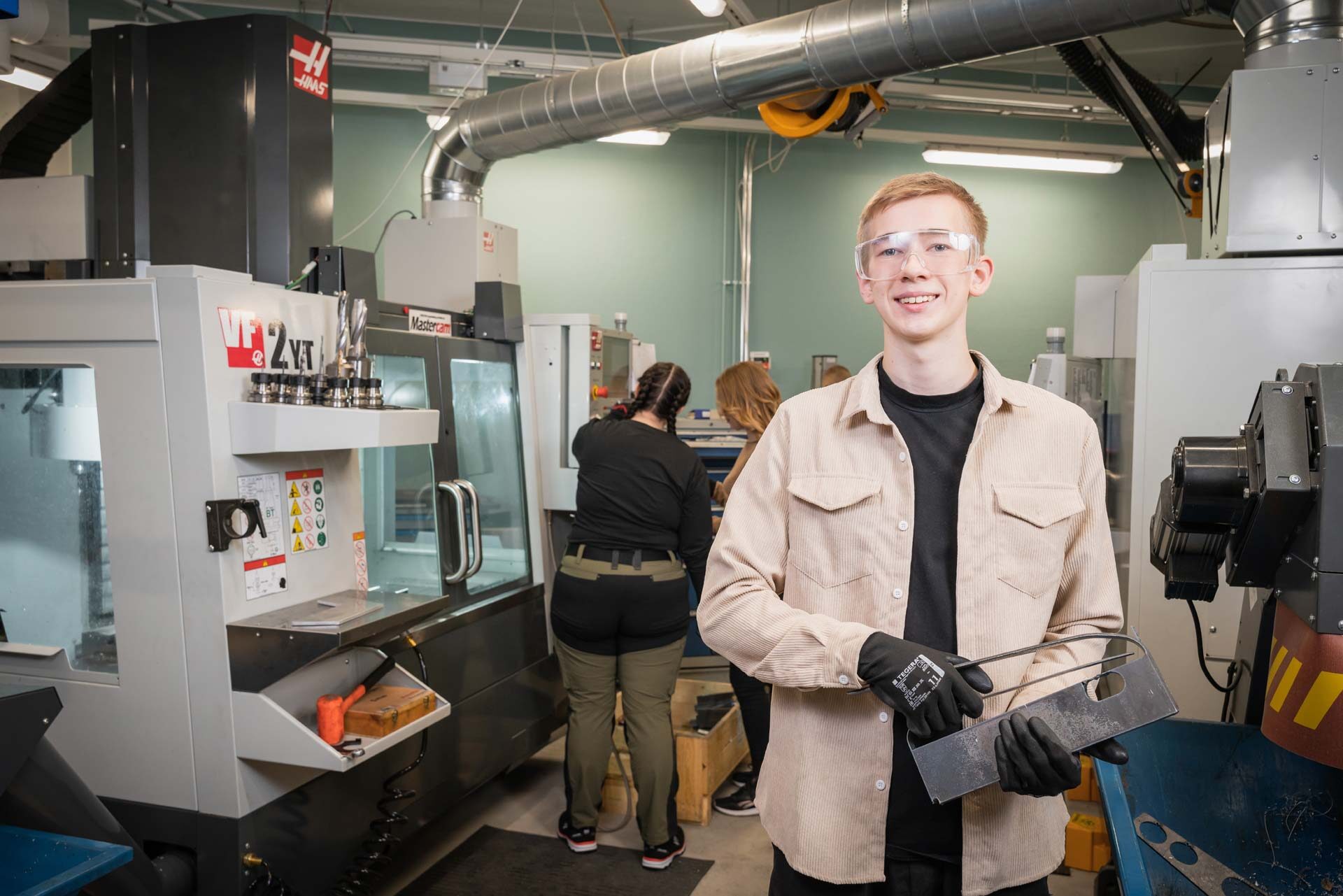
Internships
The programme includes 30 ECTS of practical training. During this time, students get to apply all of their acquired skills and knowledge in a specific firm.
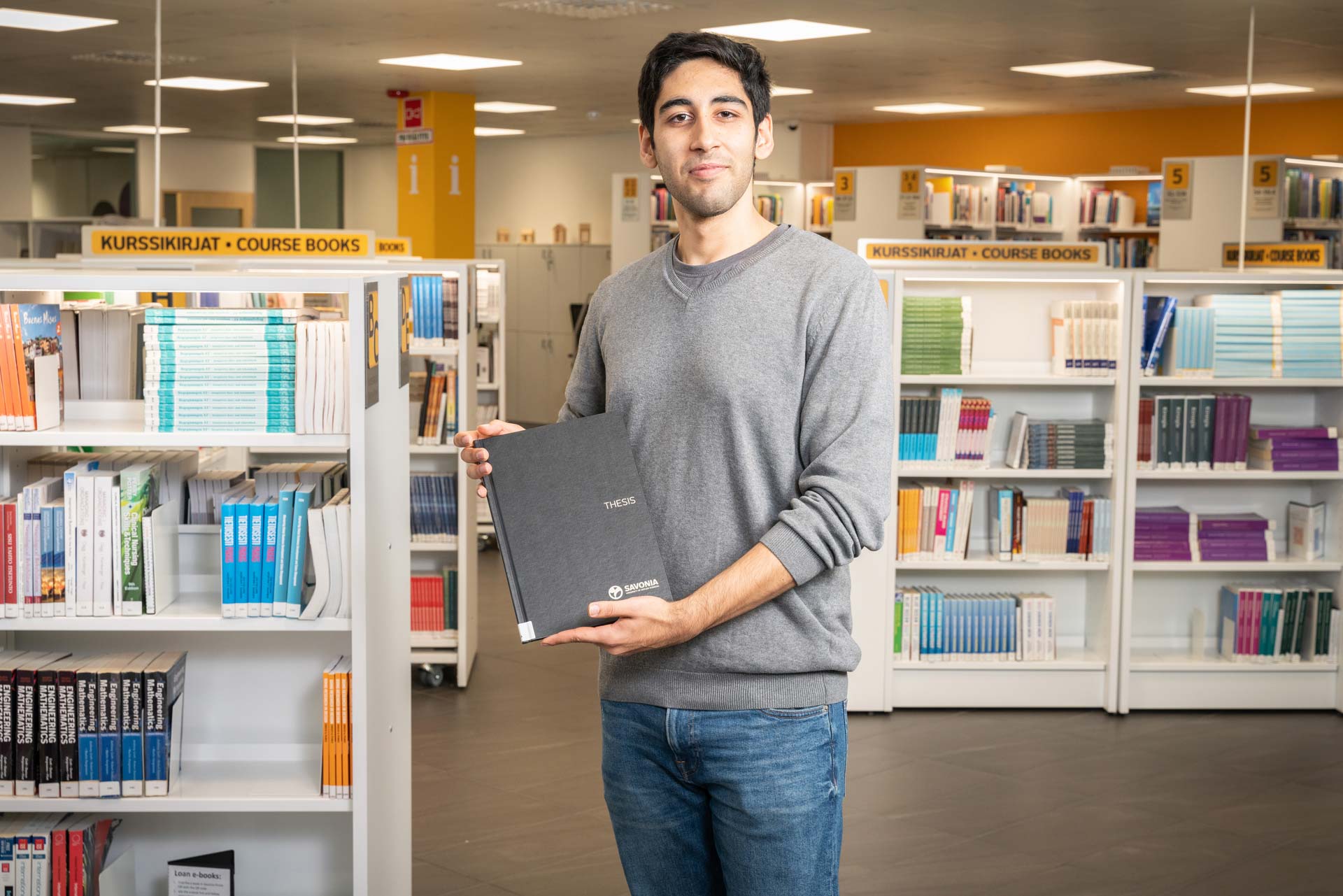
Thesis
An opportunity to explore on a deeper level a topic of your interest. The thesis is also the last project to complete before graduation!
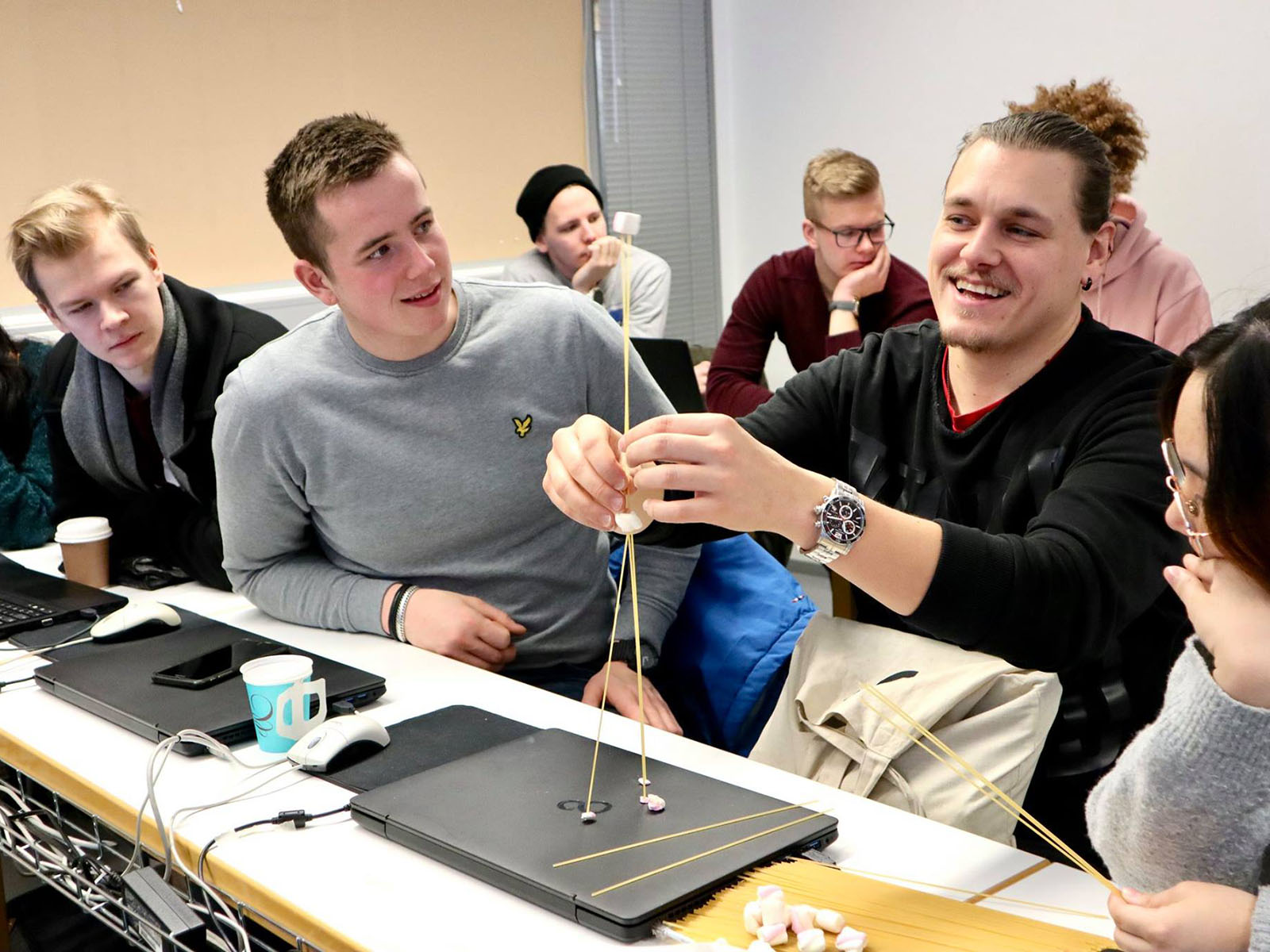
Multi-Disciplinary Projects
Mechanical Engineering students participate in multi-disciplinary projects along with students from the design and business fields in order to develop an innovative solution for a specific project.
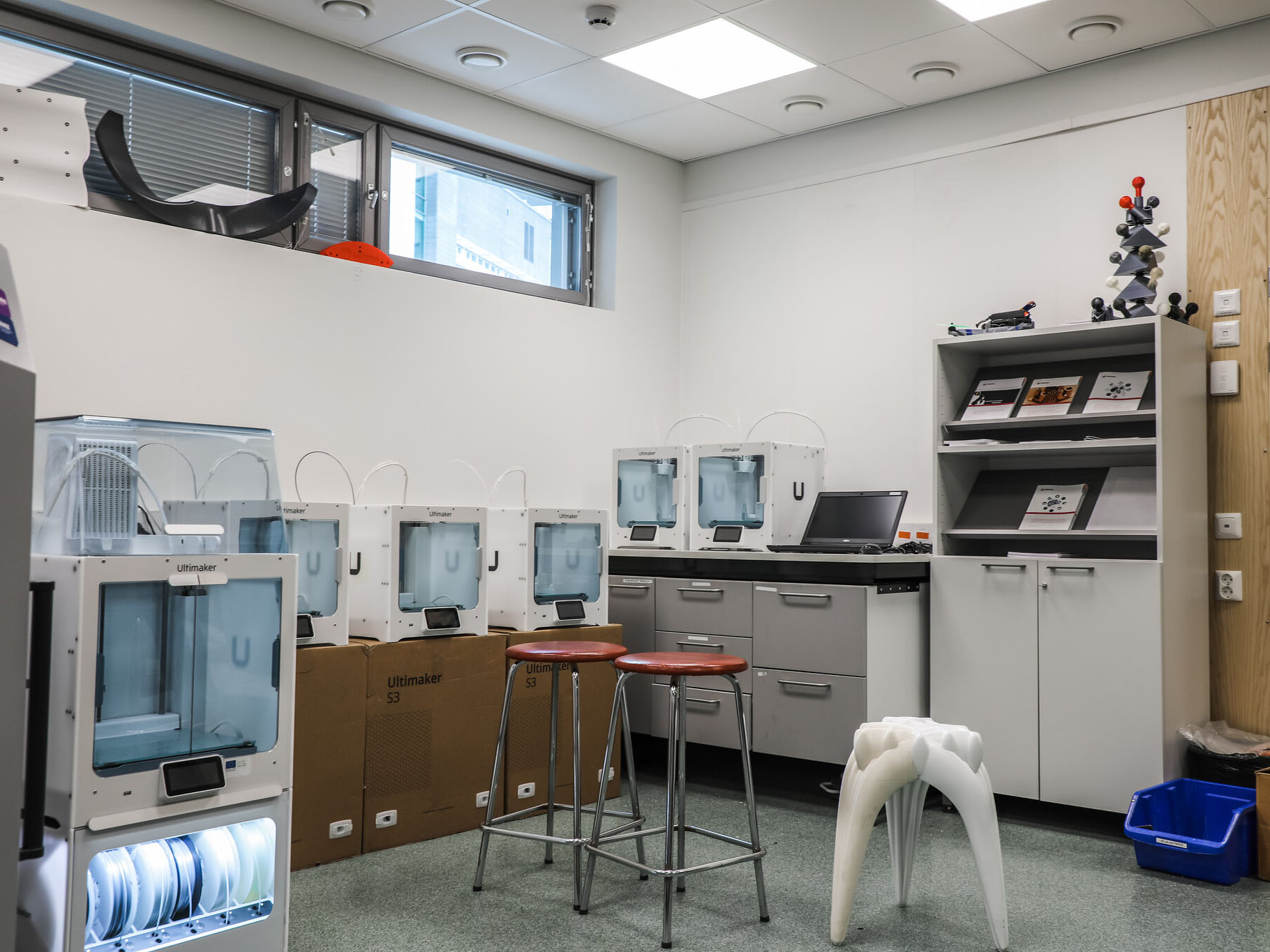
3D printing laboratory
The 3D printing laboratory is one of the laboratories in which Mechanical Engineering students get to apply and strengthen their acquired knowledge.

Cooperation with companies
Students get the chance to work closely with local businesses in different courses along their studies.
Focus areas
The Bachelor of Engineering, Mechanical Engineering programme focuses on mechatronics.
Studies include manufacturing and material technologies, 3D modelling, electrical engineering, mechanics, product design and development. In addition, studies include control system design: hydraulics, pneumatics, programming, robotics and simulation.
Content of studies
Engineers need good basic skills and knowledge in mathematics, natural sciences, product design, product development and manufacturing technology. That is why these areas form the main content of the programme during the first and second year of studies. These areas provide a strong basis for professional competencies in Mechanical Engineering. In addition, mechatronics studies provide students with a diverse knowledge of designing machine parts.
Project management is a special emphasis in your studies each academic year. It covers the principles and methods of managing processes, projects and change.
Project working is also an integral part of the study methods in Mechanical Engineering. Engineering skills, including working life skills, are learned via projects. Good interpersonal and communication skills are a must when working on global projects, involving people representing a wide range of nationalities and cultures. Managing different types of networks is also an essential skill for a future technology industry expert.
Programme structure
The degree consists of 240 ECTS. According to the curriculum, one academic year corresponds to 60 ECTS, which is equivalent to 1600 hours of a student’s workload. The study methods consist, among others, of contact lessons, distance and independent learning, e-learning, project work, and practical training. Research and development activities can be some part of your studies.
You can familiarize yourself with the content of the degree program by using the curriculum.
Language of instruction
The Mechanical Engineering programme is fully conducted in English. Please note that you are expected to have sufficient English language skills to conduct your studies fully in English.
Studying in English and in a multicultural learning environment is the best way to prepare for the challenges and opportunities that worklife in engineering provides.
Learning the Finnish language
Finnish language is an inherent part of life in Finland and the Finnish culture. Although many Finns speak English quite well, Finnish is the main language of every day operations. Knowing the Finnish language can also be an important factor in finding employment in Finland.
Finnish language studies are integrated in the English-taught programmes. By improving your Finnish language skills yearly you can also get 10% extra scholarship for the next academic year.
Career possibilities
As a Mechanical Engineer, you will have a wide range of career opportunities. The studies include a diverse perspective on technology and project management which will give you a good background to work on demanding tasks. Your studies, including practical training, will help you to find your own career path and professional interests.
Mechanical Engineers are often employed in positions of experts and managers who are responsible for planning, product development and project management. In addition, Mechanical Engineer may work with manufacturing, commissioning and sales support of technological products and services.
Possible job titles for mechanical engineers are:
- Development Engineer, Design Engineer, Patent Engineer
- Commissioning engineer, Installation Supervisor, Inspection Engineer
- Project Engineer, Project Manager
- Maintenance Engineer, Service Engineer, Product Support Engineer
- Production Planner, Production Engineer, Foreman, Production Manager
- Sales Engineer, Sales Manager, After-sales Manager
- Technology Advisor, Consultant, CEO
Cooperation
The technology industry is the most important business in the North Savonia region with its 1.7 billion euros revenue and about 800 million euros of exports each year. In the region, there are 9000 directly employed employees and 13500 employees who are employed indirectly in the technology industry.
Many of the region’s businesses operate in international markets at the leading edge of their field of operation. Their core know-how is concentrated around commercial vehicles, such as state-of-the-art forestry equipment, mining and pile-driving machines, and in furnace and boiler technology in the field of energy technology.
The Mechanical Engineering programme cooperates with the region’s industrial enterprises while undertaking their research, development and innovation work. The businesses can participate in Savonia’s projects by partially funding the activities or they can directly purchase the different RDI services provided by the DPME’s experts.
The significant volume of functions demonstrates the fact that the RDI Unit of the Department of Mechanical Engineering has succeeded in identifying the current and future needs for the development of the local businesses. With many of the businesses, the current cooperation can be described as a true partnership; for example, there are mutual benefits, continuity and varied actions. The internships, thesis and other project works conducted as part of the education represent the foundation for cooperation with these companies, but also the RDI projects are based on collaboration with the businesses.
Working life feedback
“As over 95 % of our Products are sold overseas and all the continents in the world, we see the cooperation with local universities as a very important part of our future personnel development. We constantly need more local talent for our operations around the world.
We have been establishing our support organizations strategically in important areas like North America, Latin America, South East Asia It is important to hire local people because they already understand the local culture and way of doing business in their area, in this process Savonia plays a key role for us and we want to commit and continue the fruitful co-operation we have already established with Savonia!
Our kind of products have been developing rapidly in fields of digitalization for example and in servicing modern machinery we have constant demand of new kind of talented engineers in designing and servicing the equipment around the world.”
– Miika Eskelinen, Vice President / Junttan Oy
Internationality
Our Bachelor of Engineering groups are multinational and multicultural by nature, so you will get accustomed to an international work environment from day one. In addition, the Bachelor of Engineering programme itself is designed for internationalisation. Close cooperation with our international partners brings you in contact with people and organisations outside Finland, making it possible for you to compare views, share knowledge and work side by side on projects by using technology-based communication tools as well as meeting in person.
Student exchange is also a natural and recommended part of your second-year studies, and internships (basic and/or professional) may take you anywhere in the world.
Our selection of language studies is substantial, complemented by the offerings of the University of Eastern Finland. For students outside Finland, learning Finnish has a key role in entering Finnish community and maximizing the opportunities in working life. Multicultural study groups provide a good basis for your personal experiences in all aspects of internationality.
Thesis
The thesis at Savonia is always work-related. This gives you a good opportunity to network with professionals in your field already during your studies, and often the thesis turns out to be a starting point for your career.
The thesis includes the cooperation between you, working life and the Savonia University of Applied Sciences – from choosing the topic to set the goals and actually doing it. During the process, you show that you can work independently in recognising, evaluating and solving developmental challenges in working life. Professional reporting and communication skills are required as well.
Your work-related thesis can be:
- A developmental project, which you or your team plan and implement based on the requirements of your client. Examples of such a project include product or service development, work-flow development and information material development such as a guide or manual.
- A research-oriented project, where you or your team will perform appropriate research activities to shed light on the developmental or problem-solving needs of your client.
- A compiled thesis, where projects, research or scientific articles done during the studies are gathered together and reported as a synthesis.
Your thesis process will be supported by business research studies, thesis seminars and methodology workshops. You can do your thesis independently or in a group.
Possibilities to continue studies after graduation
A Bachelor of Engineering degree is an internationally recognized and approved qualification. A Bachelor of Engineering graduate is eligible to apply to continue theoretical studies at most universities across the world. Often the following Master’s degree can be completed in 2 years, depending on the field of study and the student.
However, should you wish to continue your studies to the Master level at the Savonia University of Applied Sciences, you will be directed to start your working career to gather two years of work experience before entering a Master’s programme.
Research
Savonia’s research and development work is shown to students in everyday life via the project and thesis work. Savonia has selected four areas of focus for education and RDI. One of them, which is very important to Mechanical Engineering, is integrated product development. Research is undertaken in collaboration with enterprises and other organizations.